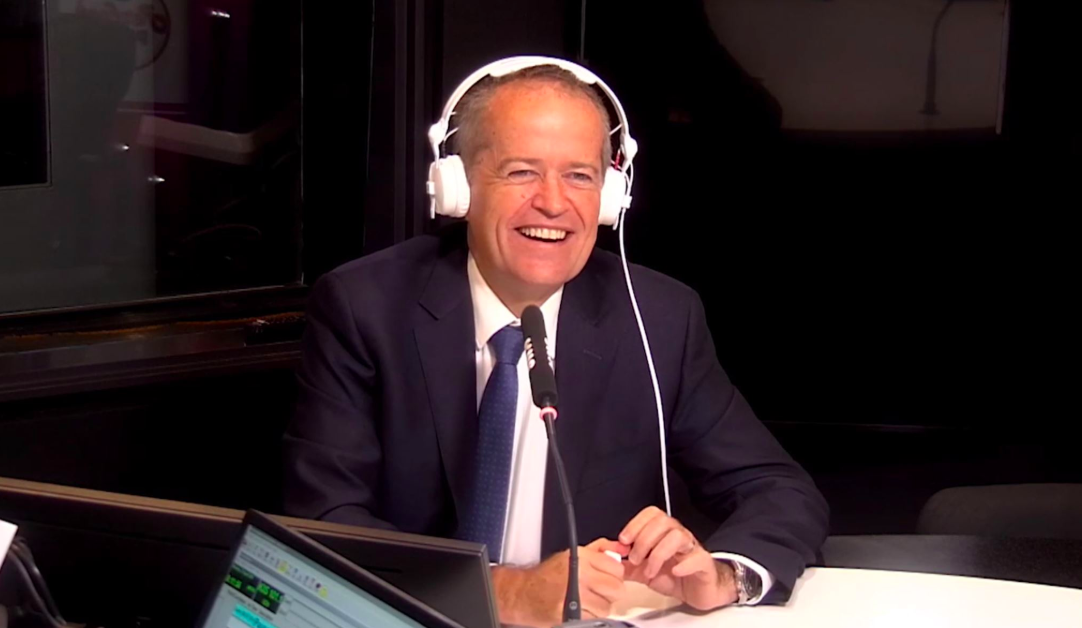Labor’s $28m music policy takes global view with $10m for Sounds Australia to export more acts

A Shorten Labor government will fund music export body Sounds Australia $10 million so it can continue to effectively showcase Australian music across the world and broker deals for them.
It is part of Federal Labor’s comprehensive Soundtrack Australia contemporary music policy before next year’s elections.
Opposition leader Bill Shorten and Tony Burke, shadow minister for the arts, will announce today at the Oxford Arts Factory in Sydney.
Millie Millgate, executive producer at Sounds Australia, told TMN, “This level of investment will be a game changer for Australian music exports and has the potential to transform the way Australia sounds to the world.”
Seemingly ticking the right boxes, Soundtrack Australia will commit to $30 million over three years.
The party stated: “From encouraging more Australian children to learn and play music, to assisting young bands reach overseas markets, to more support for live music – Labor wants to see more Australians making music, listening to music, and seeing music live.”
A parliamentary inquiry into the state of the music economy recommended that Sounds Australia and the Live Music Office have their long-term funding guaranteed to continue their good work.
“Labor wants more emerging artists to have the opportunity to record an album for public release and to play at live music venues.
“Labor will commit over $10m to the “new Sounds Australia” to deliver the functions of the office of live music to help them work with local governments to remove barriers for live music venues around the country.
“This means more places for young musicians to play, but also more venues for music lovers to see live performances locally.
“Labor will also double the funding to the New Recordings program to help a further ten new Australian artists record an EP.
“ The current program allows for ten albums to be recorded a year, and has helped artists such Courtney Barnett and Alex the Astronaut gain an audience.”
The music policy also provides strong support for emerging and established acts to break into the overseas market/
The Australian Recording Industry Association (ARIA) has noted that ARIA global exports have risen 30% over the last two years, thanks to streaming and stronger copyright laws.
It has embarked on a target with government help increase Australia’s market share of the $50 billion global record industry to rise from its current under-1% to 5%.
Labor has risen to this challenge:
Its policy reads: “One of the key foundations of Sounds Australia is to showcase Australian music overseas.
“Labor’s commitment to the new Sounds Australia will expand its reach and build on the 1500 Australian groups that have been showcased at international events in over 23 countries.
“This means more musicians have a pathway to staying in the industry and more Australian music is heard here and around the world.
“Part of showcasing our music overseas will be small grants that are made available to help promote emerging Australian bands around the world, particularly in new markets such as Asia.
“Sounds Australia and the Association of Artists Managers will work together and, when needed, provide modest grants to assist with practical measures to help bands get a foothold including costs of airfares, local management and connections and assistance with booking venues.
“These grants could mean the difference between a new band making it in a new market or not.”
Millgate told TMN that next year, Sounds Australia celebrates its tenth year of exporting Australian music to the world.
“This announcement by Federal Labor acknowledges the ten years of this success and recognises how much more Australian music can be exported to other corners of the globe.
“Increased funding and resources would allow our four-person team to expand and deliver strategic and long-term investment into North America and Europe as well as the crucial emerging music markets of Asia and South America to develop targeted export initiatives for Australian artist managers to further bolster our digital presence and commitment to increasing Australian content on global streaming platforms and to ensure that Australia’s First Nation artists are included on every international showcase stage Sounds Australia presents.”
Other aspects of the policy include:
$5 million to set up music hubs for young musicians to rehearse in
$7 million for music education and music teacher
More funding for mental health programs for musicians.
Stronger action against ticket scalpers, banning the bots software and a national approach to capping resale ticket prices.
Jimmy Barnes has responded to the proposed policy:
“Political parties aren’t really my thing but I like the sound of this new Labor music policy.
“More access to rehearsal rooms for musicians who are just starting out and more music education for poorer kids has got to be a positive thing.
“Same goes for training more young managers.
“Hopefully other politicians will get behind these good practical ideas so new generations of bands can keep taking great Aussie music to the world.”
Birds of Tokyo applauded the support of contemporary music at a federal government level.
“For as long as we can remember contemporary music has been a big part of how we define ourselves as Australians but it hasn’t been taken seriously by government. It’s great to see that changing.
“We strongly support this policy which will help more kids make music and allow more people to hear it.
“We call on every political party to make their position clear about Australian music and culture so everyone can make an informed choice at the next election.”
Labor consulted extensively with arts and music associations in shaping its policy.
The feedback from the live performance sector was that more investment was needed and that more input was needed from a wider range of ministerial departments.
As for music education, Music Australia suggested that more specialised music teachers be trained while research by The Music Trust found that 63% of schools do not offer classroom music instruction.


































